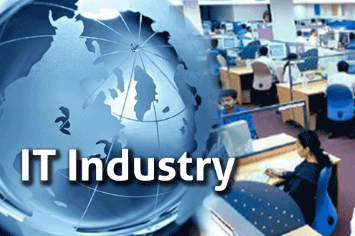Technology: Friend or Foe? Navigating the Digital Age
Introduction
Technology has undeniably transformed the human experience. From the invention of the wheel to the rise of artificial intelligence, technological advancements have driven societal progress, revolutionized industries, and fundamentally reshaped how we live, work, and interact. However, this transformative power comes with a complex set of challenges. This article will delve into the multifaceted relationship between technology and society, exploring the ways in which it can be both a powerful friend and a potential foe.
Technology as a Friend: Empowering Humanity
- Enhanced Communication and Connectivity: Technology has bridged geographical divides, connecting people across the globe with unprecedented ease. Social media platforms, video conferencing tools, and instant messaging apps have fostered global interconnectedness, enabling individuals to connect with friends and family, collaborate on projects, and access information from anywhere in the world.
- Improved Healthcare: Technology is revolutionizing healthcare through advancements in medical imaging, telemedicine, personalized medicine, and drug discovery. AI-powered diagnostics, robotic surgery, and wearable technology are improving patient outcomes, increasing access to healthcare, and enhancing overall well-being.
- Increased Efficiency and Productivity: Automation and artificial intelligence are transforming industries, increasing efficiency and productivity. From manufacturing and logistics to agriculture and customer service, technology is automating repetitive tasks, freeing up human workers for more creative and strategic roles.
- Empowering Education: Technology is transforming education by providing access to online learning resources, personalized learning experiences, and innovative teaching methods. E-learning platforms, interactive educational software, and virtual reality simulations are revolutionizing the learning experience, making education more accessible and engaging.
- Addressing Global Challenges: Technology plays a crucial role in addressing global challenges such as climate change, poverty, and hunger. Renewable energy technologies, precision agriculture, and disaster relief technologies are examples of how technology can be used to create a more sustainable and equitable future.
Technology as a Foe: The Dark Side of Progress
- Job Displacement: Automation and AI have the potential to displace jobs in certain sectors, leading to economic disruption and social inequality. As machines become increasingly capable of performing tasks previously done by humans, the risk of job displacement increases, requiring significant workforce retraining and social safety nets.
- Data Privacy and Security: The collection and use of personal data raise serious concerns about privacy and security. Data breaches, cyberattacks, and the misuse of personal information can have significant consequences for individuals and businesses.
- The Spread of Misinformation: The rapid dissemination of information through social media and online platforms can contribute to the spread of misinformation and "fake news," making it difficult for individuals to distinguish between fact and fiction.
- Mental Health Concerns: Excessive use of technology, particularly social media, can have negative impacts on mental health, contributing to anxiety, depression, social isolation, and a distorted sense of self-worth.
- Environmental Impact: The production and use of technology can have significant environmental impacts, from the extraction of raw materials to the disposal of electronic waste. E-waste is a growing global concern, with many electronic devices ending up in landfills, polluting the environment and posing potential health risks.
Navigating the Digital Age: A Balanced Approach
To harness the benefits of technology while mitigating its risks, a balanced approach is crucial. This includes:
- Promoting Responsible Innovation: Encouraging the ethical development and use of technologies, prioritizing human values and societal well-being.
- Investing in Education and Training: Equipping individuals with the digital skills and critical thinking abilities necessary to navigate the complexities of the digital age.
- Bridging the Digital Divide: Ensuring equitable access to technology and digital literacy for all, regardless of socioeconomic background or location.
- Strengthening Data Privacy and Security: Implementing robust data privacy regulations and investing in cybersecurity measures to protect individuals and organizations from cyber threats.
- Addressing the Environmental Impact: Promoting sustainable technology practices, minimizing e-waste, and developing environmentally friendly technologies.
The Future of Technology and Society
The future of technology in society will be shaped by our ability to address these challenges and harness its potential for good. By fostering responsible innovation, investing in education and training, and promoting ethical development, we can ensure that technology continues to serve as a force for positive change, enhancing human lives and creating a more just and equitable future for all.
Conclusion
Technology is a double-edged sword. It has the power to transform our world for the better, connecting us, improving our lives, and addressing global challenges. However, it also presents significant risks, including job displacement, privacy concerns, and the spread of misinformation. By navigating these challenges with a balanced approach, we can harness the power of technology to create a future where technology serves humanity, rather than the other way around.
Disclaimer: The information provided in this article is for general informational purposes only and should not be construed







